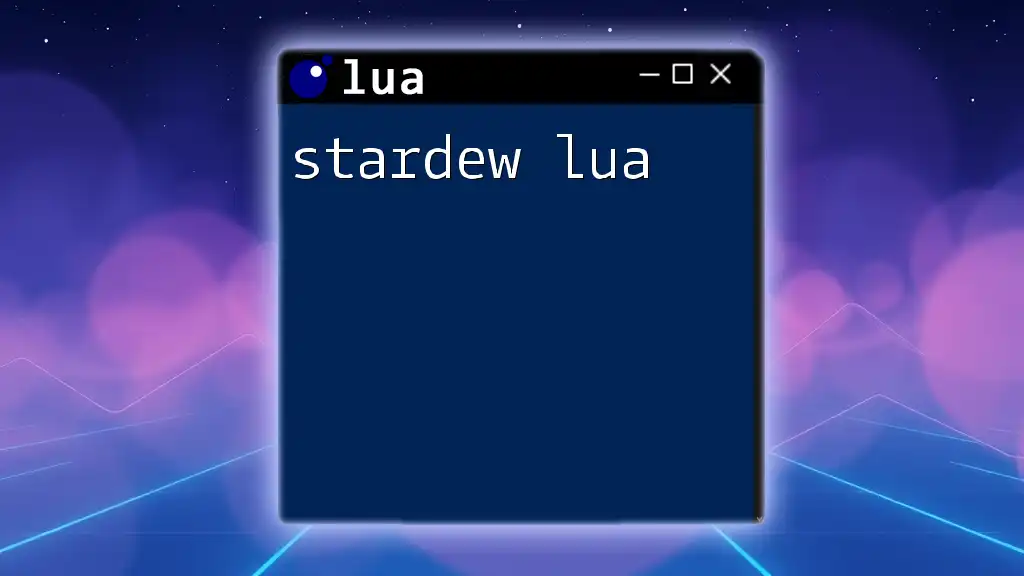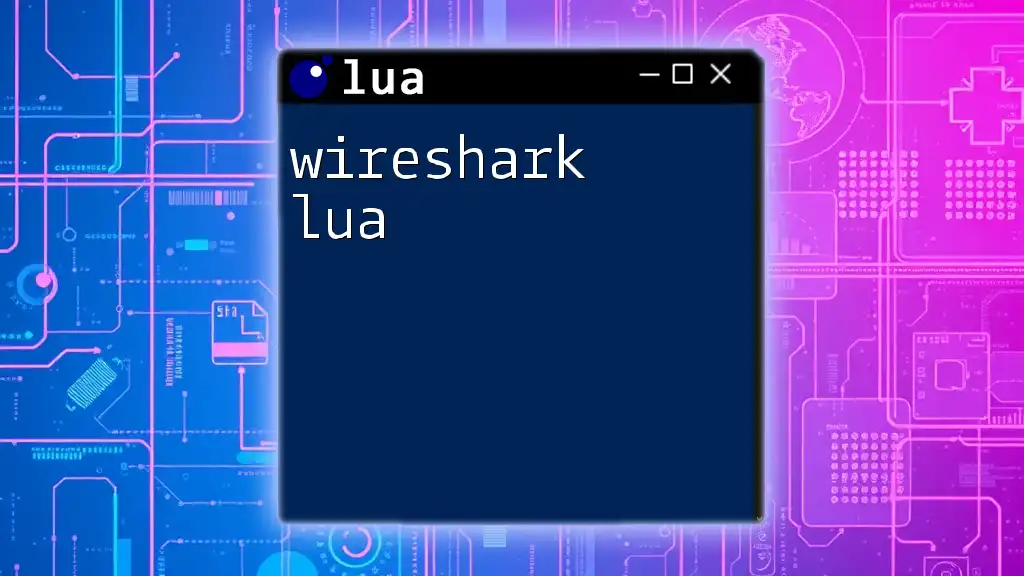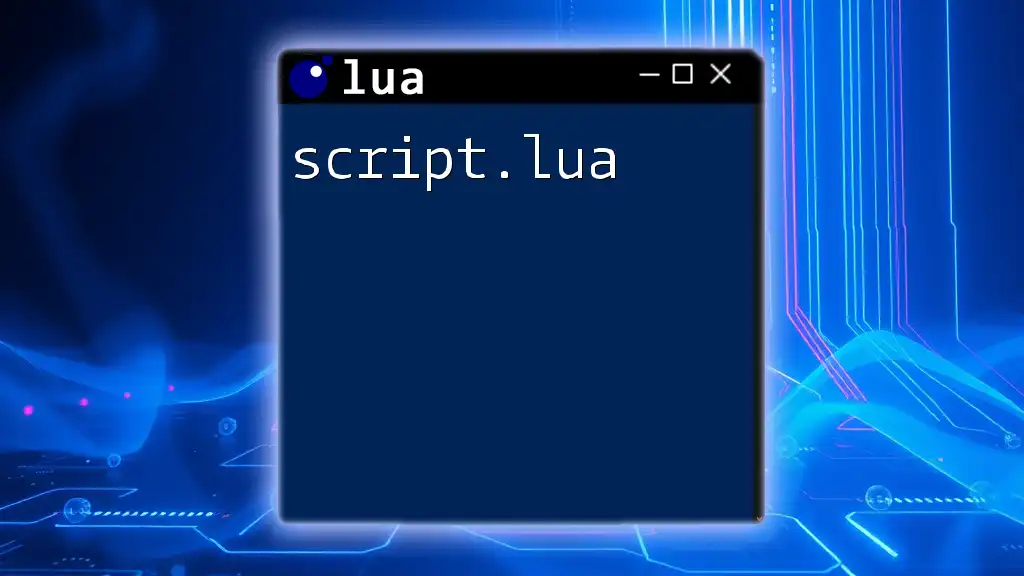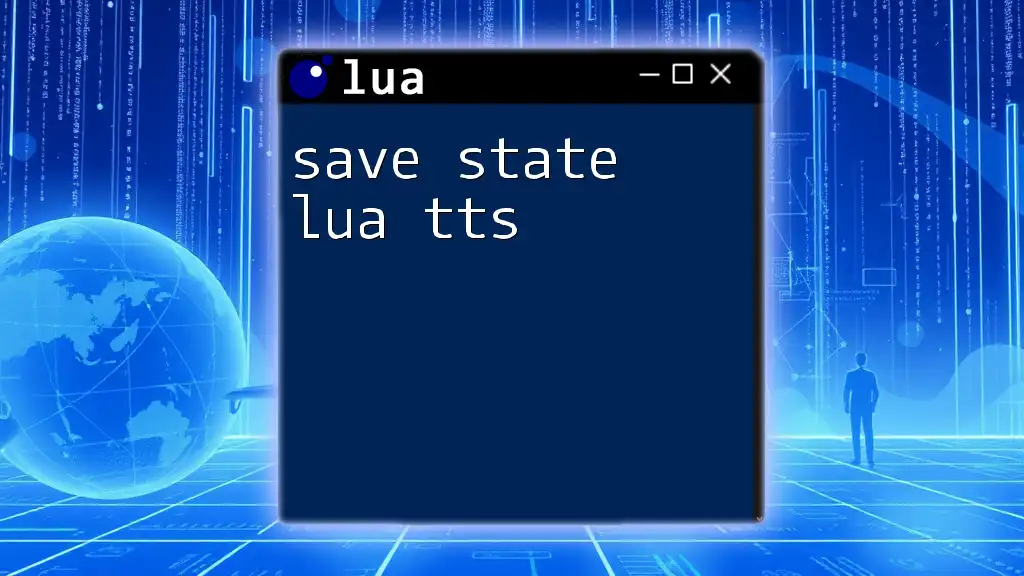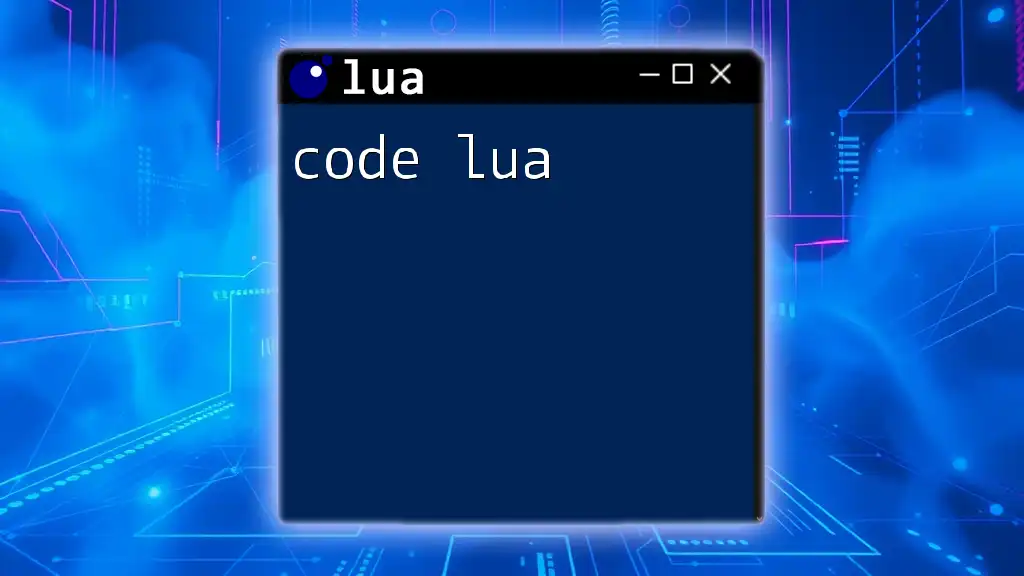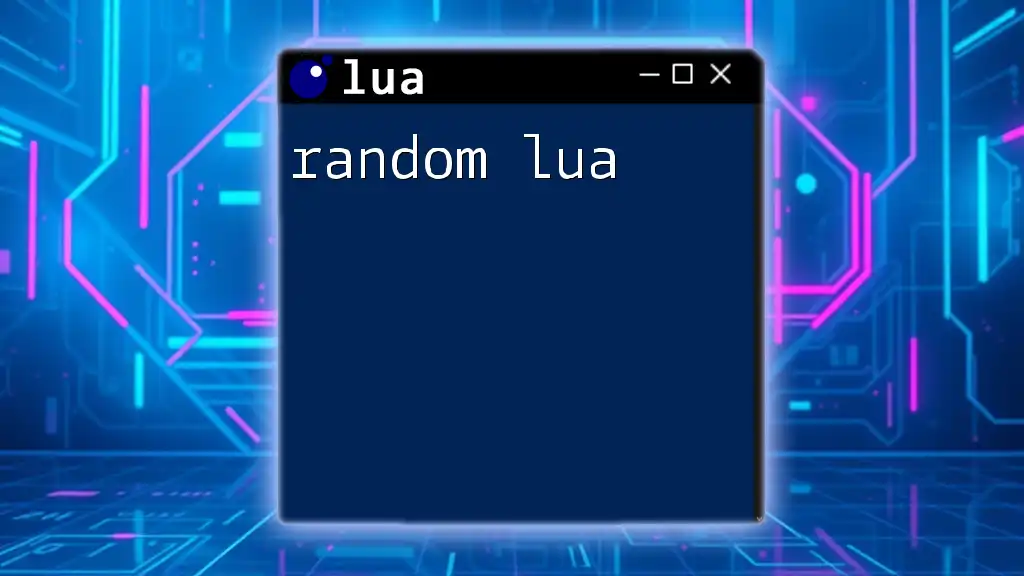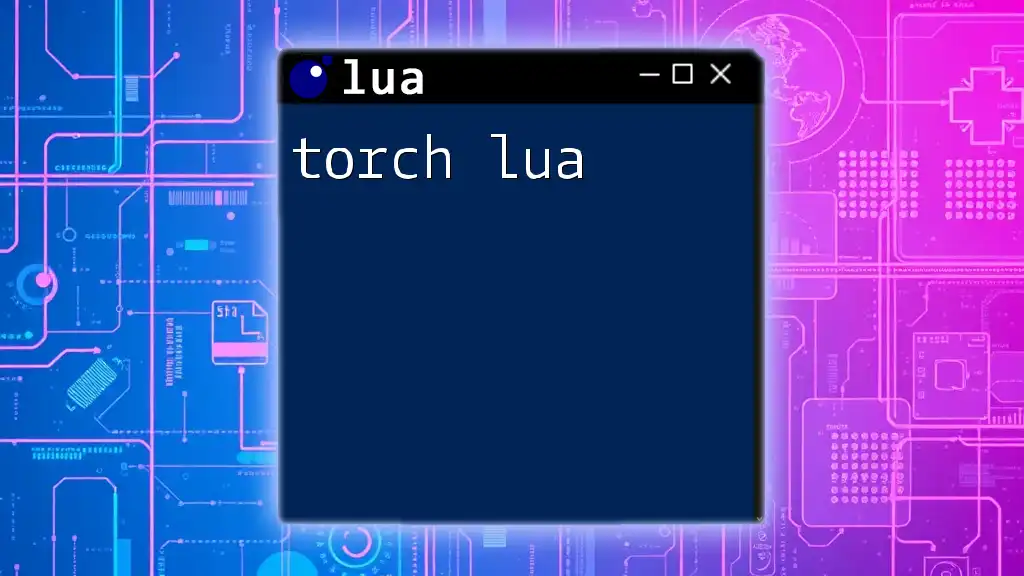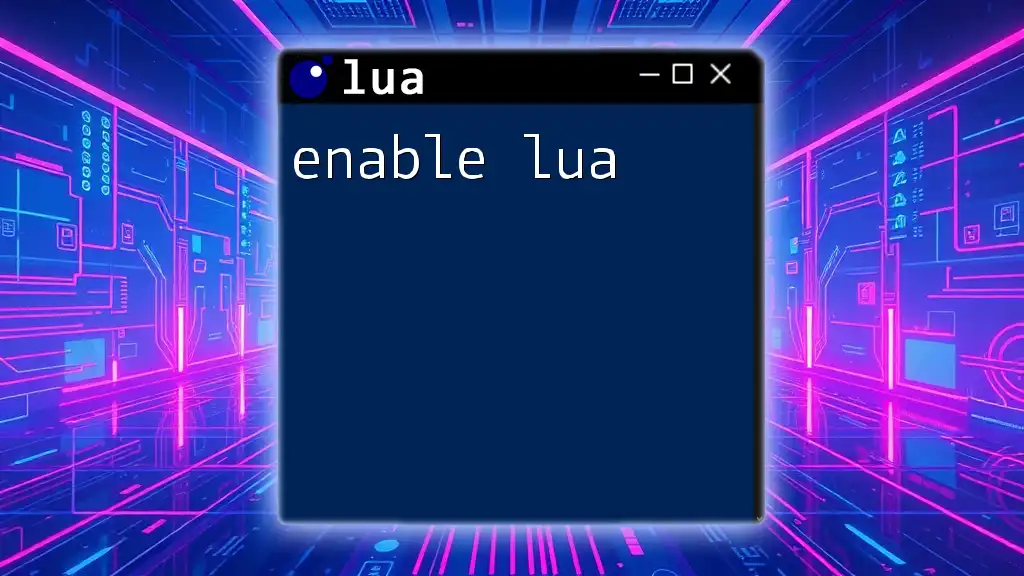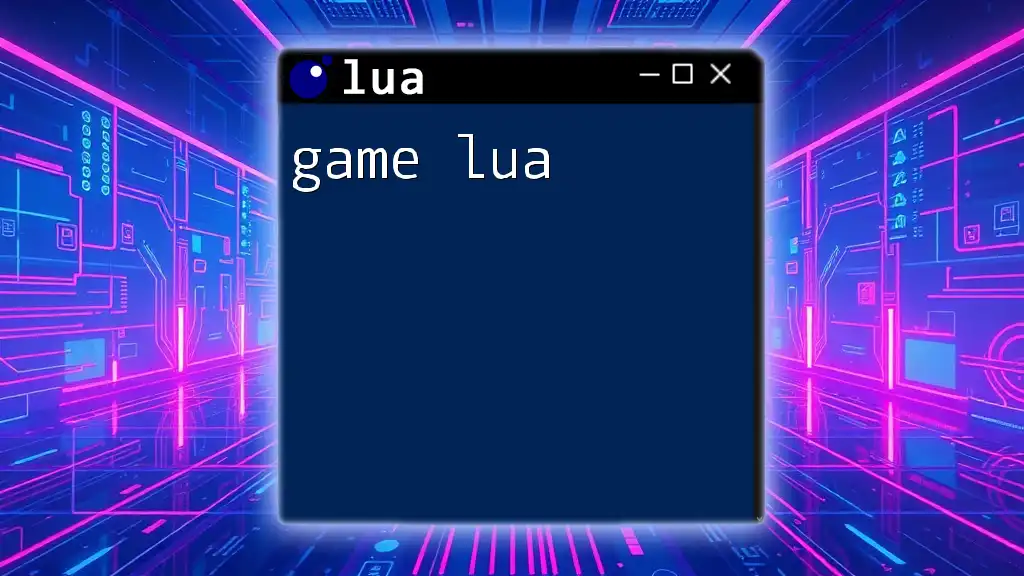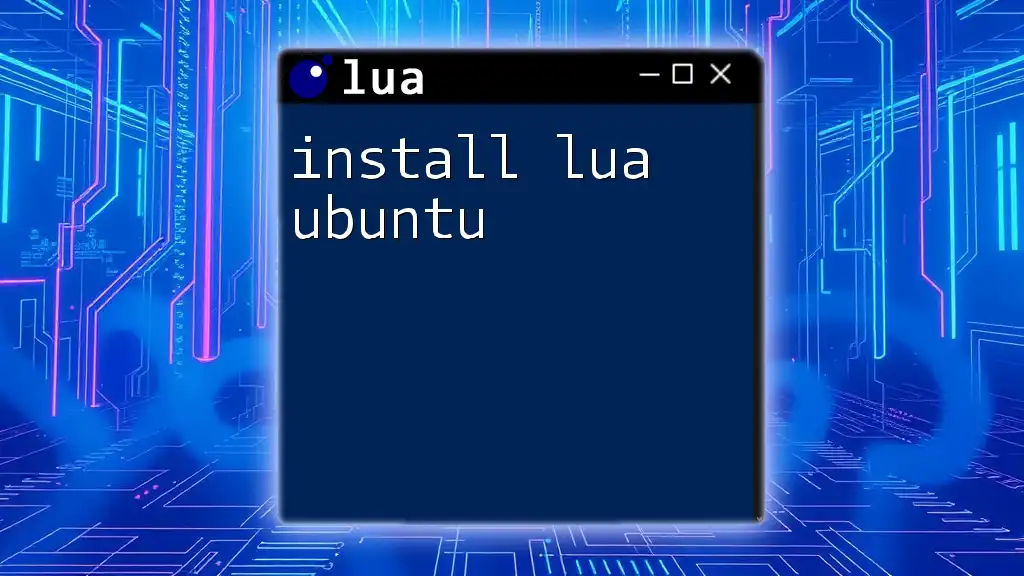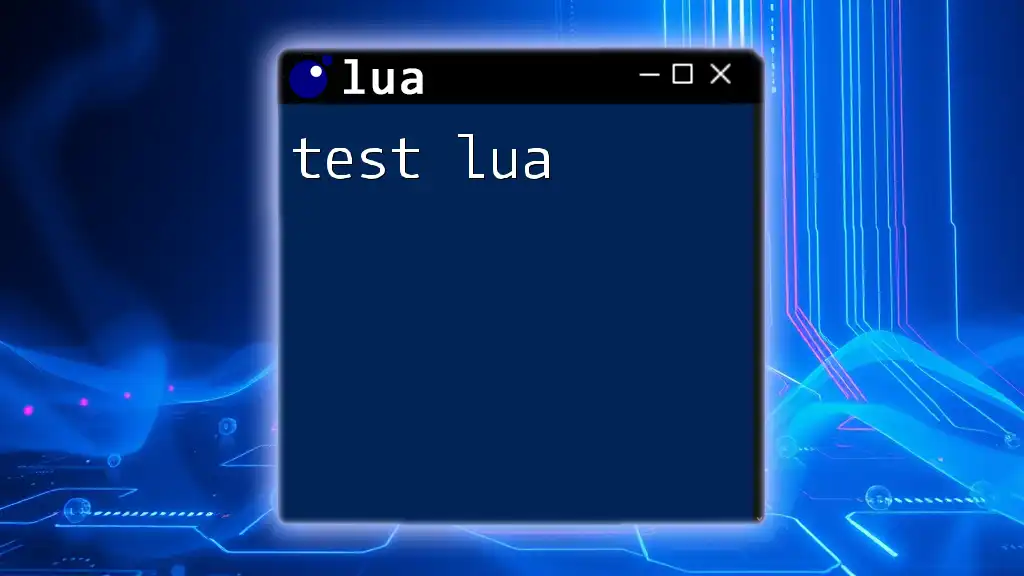"Stardew Lua" refers to the use of Lua scripting within the popular game Stardew Valley to customize gameplay elements, automate tasks, or create mods.
Here's a simple code snippet that prints a message to the player when they enter their farm:
function onFarmEnter()
print("Welcome to your farm!")
end
Event.OnFarmEnter.Add(onFarmEnter)
What is Stardew Lua?
Stardew Lua refers to the utilization of the Lua programming language within the context of modding Stardew Valley. Lua, known for its lightweight design and versatility, offers developers the ability to create custom modifications that enhance the gameplay experience. It is often used in conjunction with modding frameworks like SMAPI (Stardew Modding API) that allow modders to interact seamlessly with the game.
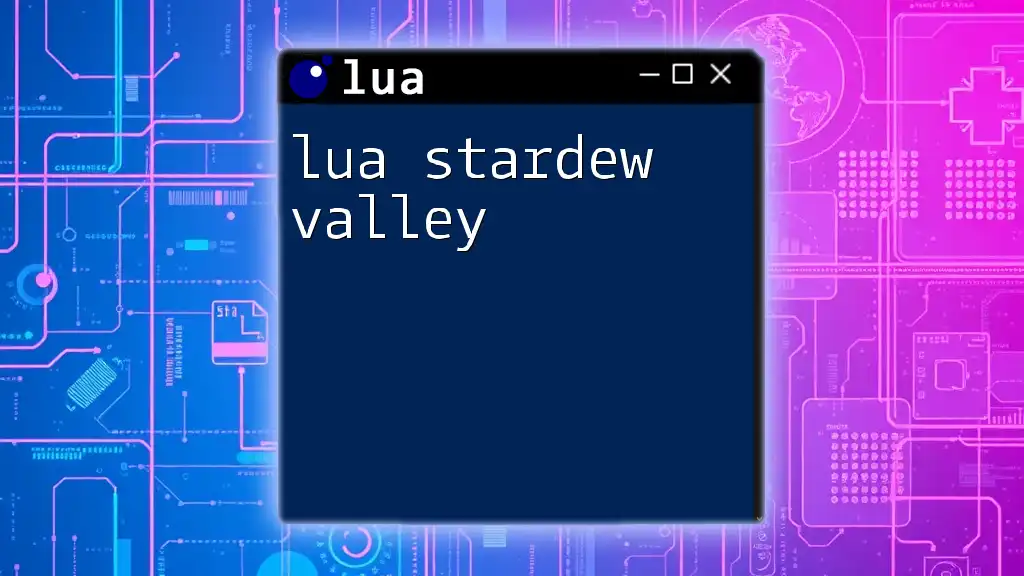
Why Use Lua in Stardew Valley?
Using Lua in Stardew Valley opens up a world of possibilities for enhancing and personalizing the game. Modding allows players to tailor their gameplay experience by adding new crops, events, items, or even entirely new mechanics. Moreover, the modding community thrives, providing a wealth of shared knowledge, resources, and collaborative opportunities that can propel you into the world of game development.
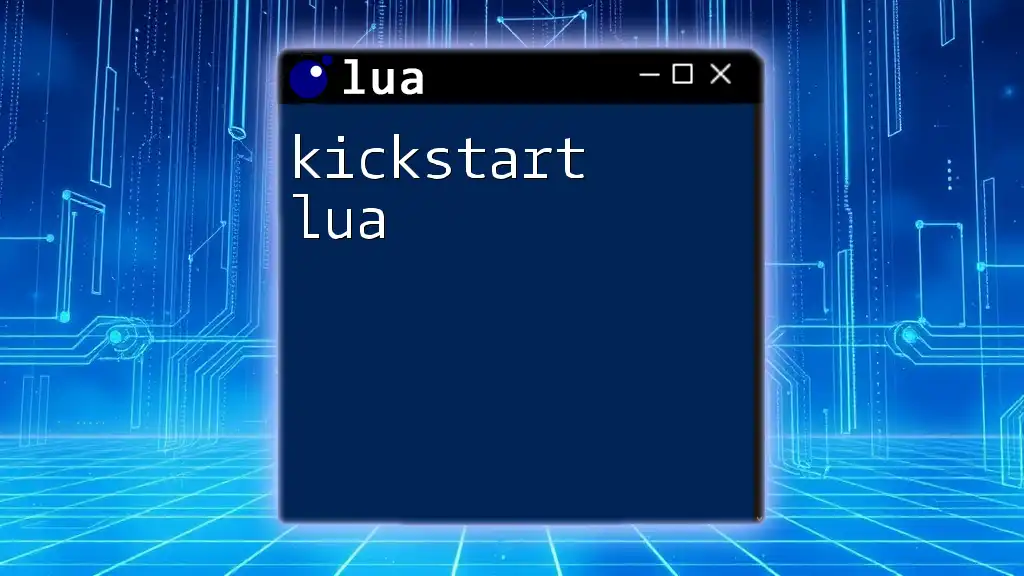
Getting Started with Lua in Stardew Valley
Setting Up Your Environment
To effectively use Lua for modding Stardew Valley, you need to set up a conducive environment. This includes:
-
Installing Lua for Stardew Valley: Ensure you have the appropriate version of Lua compatible with Stardew Valley mods.
-
Recommended tools: Utilize a text editor or an Integrated Development Environment (IDE), such as Visual Studio Code or IntelliJ IDEA, which provides code highlighting and syntax checking.
-
Setting up a modding framework: Most modders use SMAPI, which allows interactions between your code and the game. Visit the SMAPI website for installation instructions.
Basic Lua Syntax
Familiarizing yourself with basic Lua syntax is critical for efficient programming. Key features include:
-
Variables: To declare a variable, simply assign a value. Example:
local greeting = "Hello, Stardew!" -
Control structures: Lua supports conditional statements like `if`, `else`, and loops like `for` and `while`. An example of a simple control structure could look like this:
local dayOfWeek = "Monday" if dayOfWeek == "Monday" then print("Start of a new week!") else print("Keep going!") end
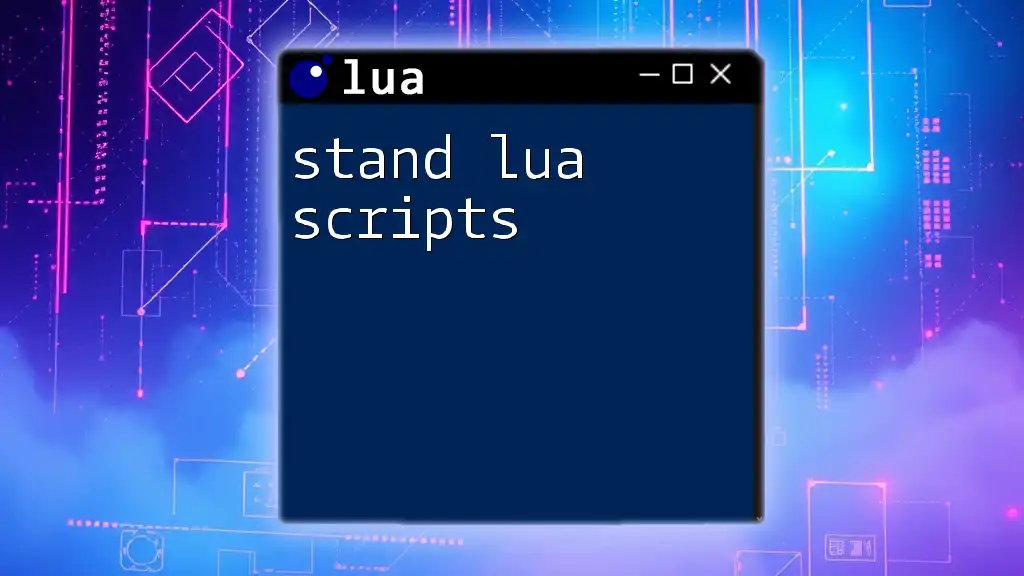
Key Lua Concepts for Stardew Valley Modding
Tables and Their Importance
Tables are the backbone of Lua's data structures, allowing you to store collections of data.
-
Creating and manipulating tables is straightforward. For instance, if you want to store a list of crops:
local crops = { "Wheat", "Corn", "Tomato" } -
You can access elements and modify them easily:
print(crops[1]) -- Output: Wheat crops[2] = "Pumpkin" -- Changes Corn to Pumpkin
Functions: Creating Reusable Code
Functions are essential for writing organized, maintainable code.
-
To define a function in Lua, describe the actions you want to perform. For example, if you want to compute the growth time of a crop:
function growth_time(crop) if crop == "Wheat" then return 4 elseif crop == "Corn" then return 7 end end -
Call the function whenever you need:
print("Growth time for Corn: " .. growth_time("Corn") .. " days")
Events and Hooks
Events in Lua allow you to respond to specific in-game occurrences.
-
With mods, you can hook into Stardew Valley events. For example, triggering code at the start of each day:
mod.GameEvents.OnDayStarted:Add(function() print("A new day has begun!") end)
This allows modders to execute custom operations, enhancing gameplay interactivity.
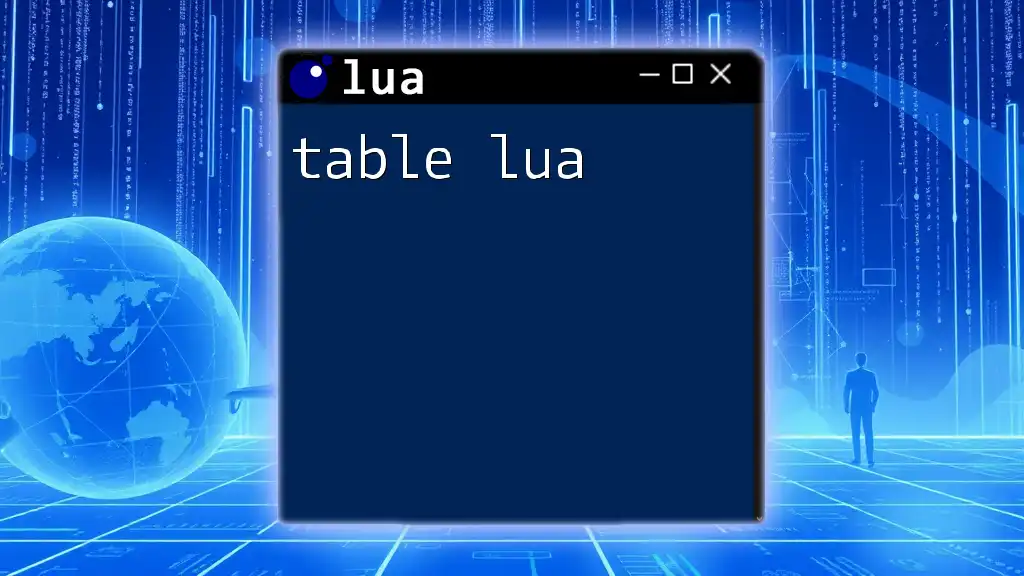
Modding Stardew Valley with Lua
Creating Your First Mod
Creating a mod can be an exciting experience. Here’s a simplified process:
- Step 1: Obtain the Stardew Valley API to access the game’s functions.
- Step 2: Create a new `.lua` file and write your desired code.
- Step 3: Include your mod’s descriptor file (manifest) that provides important metadata.
Example Mod: Adding a New Crop
To illustrate how to create a basic mod, let’s add a new crop. Define the crop properties in your script file:
local newCrop = {
name = "Magic Bean",
growthTime = 7,
}
Then, register the new crop with the game engine to make it available in-game.
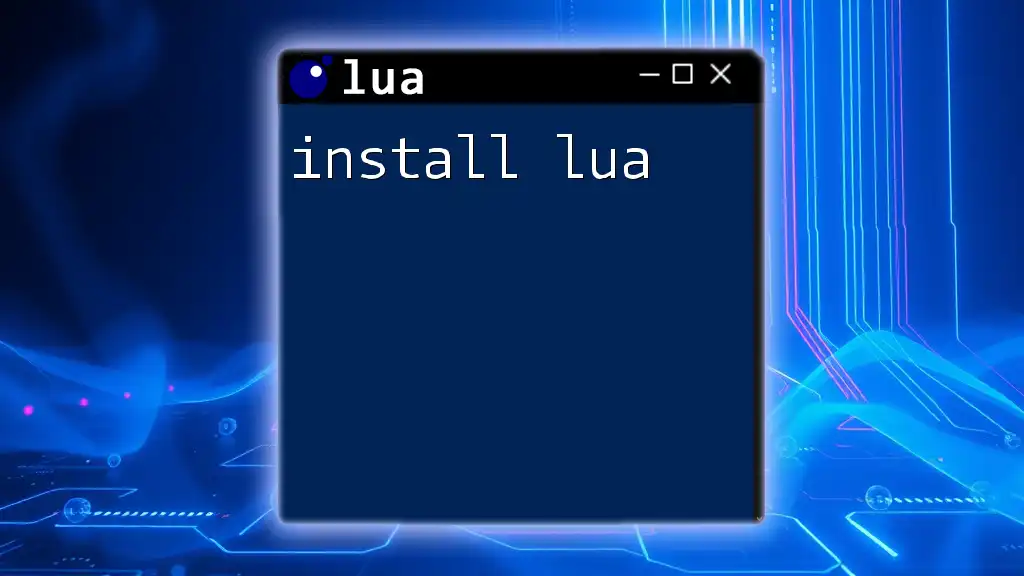
Advanced Lua Concepts for Modders
Object-Oriented Programming in Lua
While Lua is primarily procedural, it supports object-oriented programming (OOP) through tables and metatables.
-
You can define a class in Lua like this:
Crop = {} Crop.__index = Crop function Crop:new(name, growthTime) local instance = setmetatable({}, Crop) instance.name = name instance.growthTime = growthTime return instance end
Using Libraries and Frameworks
Leverage third-party Lua libraries to enhance your modding capabilities. Libraries can be added to your project to access a plethora of functions and utilities.
-
Search for popular libraries and understand how to import them into your codebase:
require("libName") -- Example of importing a library
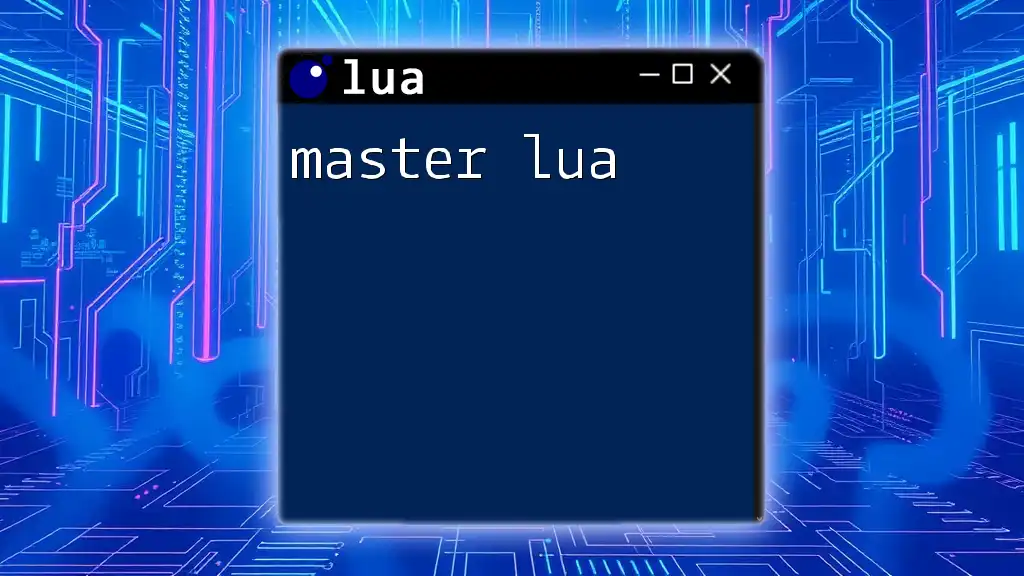
Debugging and Testing Your Lua Code
Common Errors in Lua and How to Fix Them
Errors can range from syntax mistakes to logic errors. It’s essential to be aware of:
-
Syntax errors: Typically show up before your script runs, catch these in your coding environment.
-
Runtime errors: Occur during code execution, often related to undefined variables or functions.
Tips for Debugging Stardew Mods
Use debug statements, such as `print()`, to track your code’s flow and output values. For instance:
print("Debugging this function with variable: " .. myVariable)
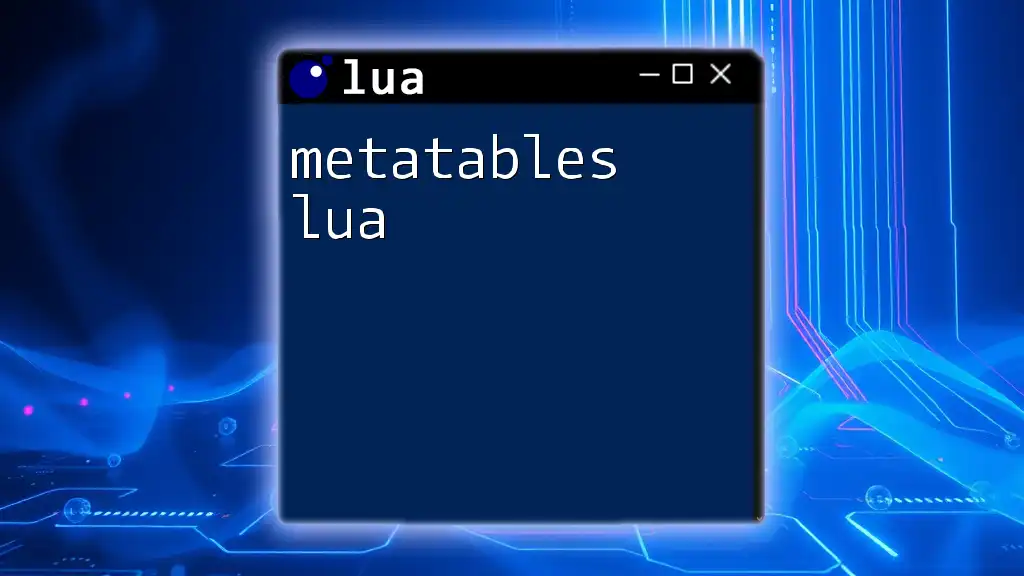
Community and Resources
Where to Find Lua Stardew Modding Resources
The Stardew Valley modding community is rich with resources. Several websites, forums, and documentation provide invaluable insights and examples.
- Look for guides on GitHub and forums dedicated to Stardew Valley mods.
Connecting with the Stardew Modding Community
Engaging with fellow modders can enhance your learning curve significantly. Consider joining:
- Online forums or dedicated Discord channels to share your mods, seek feedback, and collaborate.
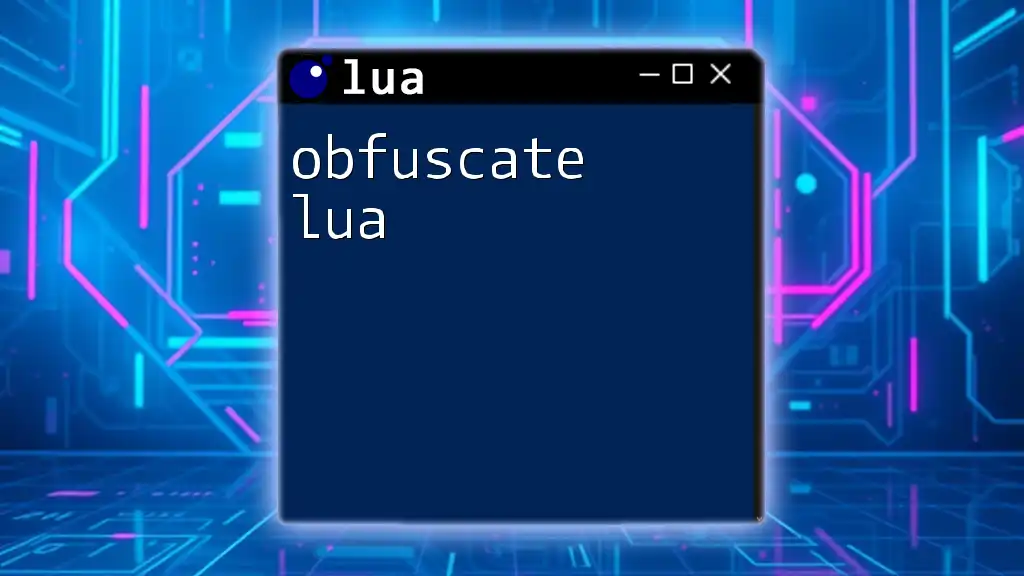
Conclusion
In summary, mastering Stardew Lua significantly enriches your Stardew Valley experience. This language not only allows for extensive customization of gameplay but also enables you to contribute meaningfully to the ever-growing modding community.
Embrace the learning process, experiment with your code, and you might just create the next popular mod that players can't get enough of!
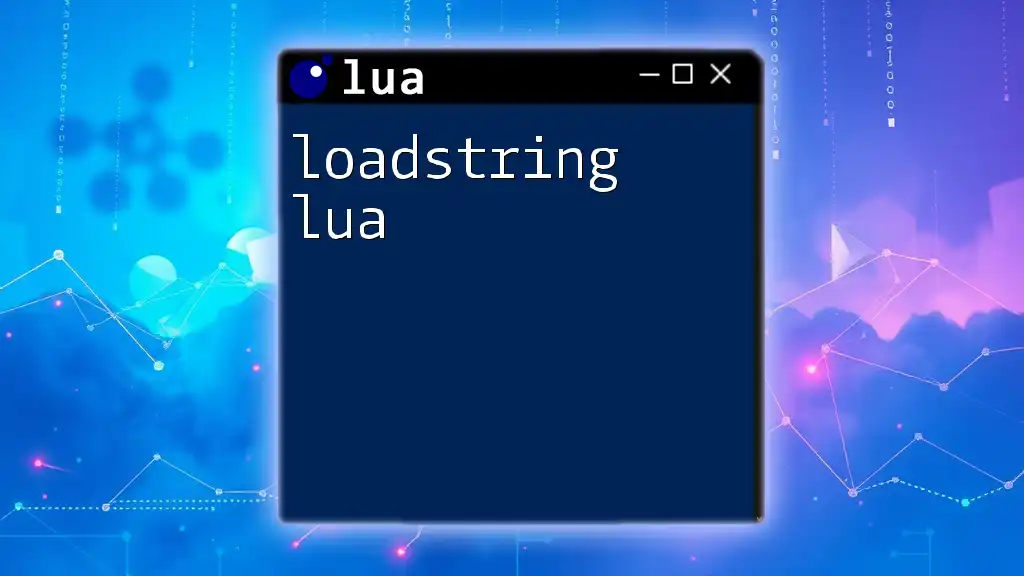
Call to Action
Ready to delve deeper into the world of Lua? Join our Lua classes today for more in-depth tutorials, hands-on projects, and personalized guidance as you embark on your modding journey!

